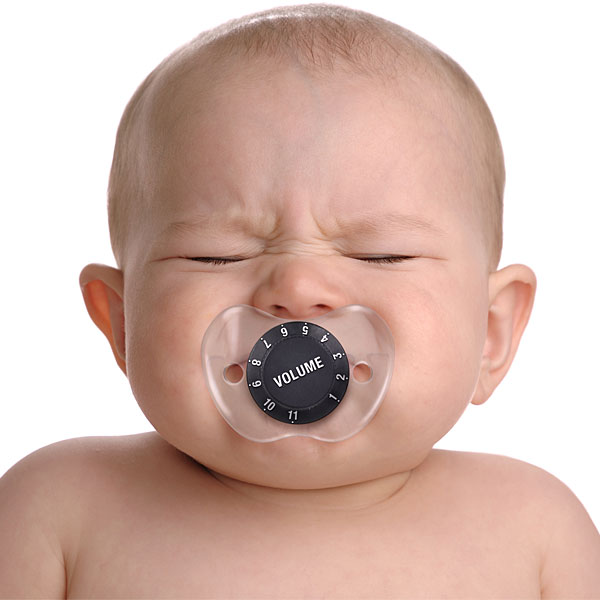Recognizing Normal Speech Development Milestones
How to get toddler to talk? Understanding your toddler’s speech development milestones is key in measuring their progress and ensuring they are on track. Here’s what typically can happen from birth to three years:

- 0 to 6 months: Babies coo and babble, and start to respond to voices and sounds.
- 7 to 12 months: Your baby may start to understand simple words like ‘no’. They might use gestures more.
- 13 to 18 months: Toddlers can often say a handful of words and can follow simple commands.
- 19 to 24 months: They may name familiar items and start to put two-word phrases together.
- 2 to 3 years: You’ll notice a big jump in vocabulary and they may speak in short sentences.
Keep in mind, these are just guidelines. Every child is unique and may hit these milestones at different times. If your toddler is a bit slower in reaching a milestone, it’s not always a cause for concern. However, it’s important to stay aware of their development. Encourage speech through daily interactions and reading to them. If you notice significant delays, discuss your observations with a pediatrician or speech-language pathologist.
Understanding the Difference Between Receptive and Expressive Language
How to get toddler to talk?Learning to talk is an important milestone in a toddler’s development. Many parents don’t realize there are two parts to language: receptive and expressive. Receptive language is about understanding words and expressive language is about using words to communicate. Let’s dig a bit deeper into what these mean for your toddler.
Receptive Language
Receptive language means how children take in and understand language. It’s what they can comprehend. Even very young infants can respond to sounds. They may follow objects with their eyes or turn towards your voice. As they grow, toddlers understand more, like commands or the names of objects.
Expressive Language
Expressive language is what a child can express themselves. This includes words they say, their attempts at sentences, and non-verbal communication. Gestures, like waving ‘bye-bye’, count towards expressive language too. It’s important for children to develop this skill to share thoughts and needs.
Toddlers may understand words (receptive) before they can use them (expressive). If your child seems to understand more than they can express, it’s not unusual. They might follow instructions but can’t yet say words. This shows strong receptive skills, but expressive ones need more time to develop.
Knowing the difference between these two types of language helps you support your toddler. Encourage receptive skills by talking to your child and naming objects during play. Boost expressive language by reading books together and prompting them to repeat words. If your toddler seems behind in expressive language, a speech therapist may help. They can work with your child to grow their talking skills.

Common Reasons Why Toddlers Might Not Be Talking Yet
Discovering why a toddler may not be talking as expected can be complex. Here are the most common reasons:
Expressive Language Delay
An expressive language delay is one reason. This means a child understands words but struggles to use them. It’s as if their brain hasn’t fully learned how to send out speech signals yet.
Speech Delay
Speech delay is another. Here, a child might understand and want to speak, but their pronunciation skills lag. They know what they want to say but can’t produce the sounds correctly.
Coordination Difficulties
Some toddlers find it hard to coordinate the mouth movements needed for speech. Their muscles may not follow commands as needed for clear talking.
Limited Opportunity for Talking
Not getting enough chance to talk can impact speech development. If adults talk for them or don’t encourage them to speak, toddlers may not practice speaking much.
Hearing Problems
A child might not talk because they can’t hear well. Even minor hearing issues can affect how they learn to pronounce words.
Social Interaction
Toddlers learn to talk by interacting with others. If a child has less social contact, their speech can be slower to develop.
Brain Development
Each child’s brain develops at its own pace. Some may take more time to reach the stage where they can speak.
Understanding these points can guide parents on how to support their child. If your toddler falls into any of these categories, or if you’re concerned, it’s okay to seek advice from a professional.
Strategies for Encouraging Speech at Home
Encouraging your toddler to speak may involve simple changes to your daily routine. How to get toddler to talk? Here’s how you can support their verbal skills:
Talk Throughout the Day
Engage in conversation with your child frequently. Narrate your actions and their environment to provide consistent language exposure.
Simplify Your Language
Use simple words and sentences when chatting with your toddler. This makes it easier for them to understand and mimic.
Reinforce Attempts to Talk
Celebrate and reinforce any attempt your child makes to speak, even if the words aren’t perfect. Encouragement boosts confidence.
Listen and Respond
Show your toddler that you value their attempts to communicate by listening attentively and responding appropriately.
Expand on Their Language
When your child uses a word or phrase, respond by expanding on it. If they say ‘ball’, you might reply, ‘Yes, that’s your big red ball!’.
Limit Screen Time
Too much screen time can limit opportunities for interaction. Restrict screens and encourage active play and dialogue instead.
Sing Songs and Nursery Rhymes
Music and rhymes are enjoyable ways to learn language rhythms and patterns, aiding in speech development.
Use Correct Pronunciation
Model proper pronunciation. If your child says ‘wawa’ for water, respond with ‘Yes, water!’ to reinforce correct usage.
Offer Choices to Encourage Verbal Responses
Give your toddler options to choose from and encourage them to respond verbally to make a choice.
Use Books With Simple Phrases
Select books with simple text and vivid pictures to stimulate interest and encourage your toddler to repeat phrases.
Interactive Play
Play games that require taking turns and mimicry, like ‘Simon Says’, to promote verbal interaction.
By incorporating these strategies into your daily routines, you will not only help your toddler’s speech development but also bond and have fun together! If you’re concerned about their progress, don’t hesitate to consult a professional.
The Role of Reading in Language Development
How to get toddler to talk? Reading plays a pivotal role in a child’s language development. Regular reading sessions expose toddlers to a variety of words and phrases, helping to expand their vocabulary and improve their understanding of language structure. Here are some key ways that reading contributes to speech and communication skills:
Exposure to Rich Vocabulary
Books introduce new words that may not come up in everyday conversation. This broadens your child’s vocabulary more quickly and effectively.
Understanding Sentence Structure
Stories in books follow a logical sequence, teaching toddlers how sentences are formed. By hearing different sentence patterns, they learn to construct sentences of their own.

Enhancing Listening Skills
Listening to stories helps toddlers practice their listening skills, which are essential for speech development.
Encouraging Repetition
Repeating phrases or rhymes from stories can help toddlers practice pronunciation and speech fluency.
Fostering Imagination and Expression
Reading stimulates a child’s imagination. Engaging with stories encourages them to express their thoughts and feelings, which in turn, boosts their expressive language.
Developing Comprehension
Books often contain a narrative or moral that teaches comprehension skills. Understanding the story requires processing what the words mean together.
Bonding and Interaction
Reading together reinforces the bond between parent and child. This interaction is crucial for language development as children learn best in safe, loving environments where they can communicate freely.
Incorporating reading into your child’s daily routine is a simple yet powerful way to nurture their language skills. Combining the tips mentioned above with everyday reading can pave the way for a lifetime of language success.
The Importance of Interactive Play and Communication
How to get toddler to talk? Interactive play and communication are vital in developing your toddler’s language skills. This hands-on approach encourages toddlers to speak and listen, providing a practical and enjoyable environment for them to learn and use new words. Below are some key points highlighting the importance of these interactive methods.
Boost Listening and Speaking Skills
Playing with your child boosts their ability to listen and respond. Games like ‘Simon Says’ or ‘I spy’ are excellent for this.
Promotes Turn-Taking
Interactive play teaches toddlers the concept of taking turns in conversation, which is fundamental to communication.
Builds Confidence
When engaging in play, toddlers often feel more comfortable trying out new words and phrases, thereby increasing their confidence.
Enhances Understanding of Social Cues
Through play, toddlers learn to read facial expressions and body language, key aspects of effective communication.
Provides Context for Language Use
Toys and role-playing games give words context, making learning more meaningful and memorable for your child.
Encourages Problem-Solving and Critical Thinking
Solving puzzles and working through play scenarios can foster critical thinking, which is closely linked to language development.
Remember, the key to encouraging language through interactive play is to be involved. Get down to your toddler’s level, make eye contact, and engage in the play with enthusiasm. By being an active participant, you’re not only helping your toddler to develop their language skills but also creating a closer bond with them.
Knowing When to Seek Professional Help
How to get toddler to talk? As a parent, knowing when to seek help for your toddler’s speech development is essential. If your child is not meeting the typical milestones, it may be time to consult with a professional. Here are key indicators that you should consider reaching out for help:
- No First Words: If your child is about 14 months old and hasn’t spoken their first word, it’s a good idea to talk to a pediatrician.
- Trouble Following Directions: By age 2, if your child has difficulty understanding or following simple instructions, this might indicate a problem.
- Limited Vocabulary: By the age of 2, children should have a vocabulary of around 50 words. If your toddler has significantly fewer, see a professional.
- Not Combining Words: At 2 years old, toddlers usually start combining words into simple phrases. Seek help if this isn’t happening.
- Struggles with Pronunciation: It’s normal for toddlers to struggle with certain sounds, but if overall speech is hard to understand at 3 years old, professional guidance can help.
- Social Interaction Issues: If your toddler shows little interest in communicating with family or peers, it might be time to look into speech therapy.
- Hearing Concerns: If you suspect any hearing issues, consult with a pediatrician immediately as this can impact speech development.
Remember, early intervention can lead to more successful outcomes. So, don’t hesitate to reach out to a speech-language pathologist or your child’s pediatrician if you have concerns about their language development.
Supporting Bilingual Language Development in Toddlers
How to get toddler to talk? Raising a bilingual toddler offers unique advantages. Here’s how you can support their dual language growth effectively:
Provide Consistent Exposure to Both Languages
Expose your child to both languages regularly. This can be through conversation, storybooks, or songs in both languages.
Use One Parent, One Language Strategy
If possible, let each parent consistently speak a different language to the child. It helps in clear linguistic distinction.
Encourage Interaction in Both Languages
Encourage your toddler to play and interact with speakers of both languages. This enhances their practical use of each language.
Offer Educational Toys and Media in Both Languages
Choose toys and media that offer bilingual options. Interactive books, games, and apps in both languages are beneficial.
Be Patient and Encouraging
Bilingual development might seem slower as they are learning two language systems. Keep encouraging and praising their efforts in both languages.
These strategies ensure a balanced bilingual environment, fostering robust language skills in your toddler.



